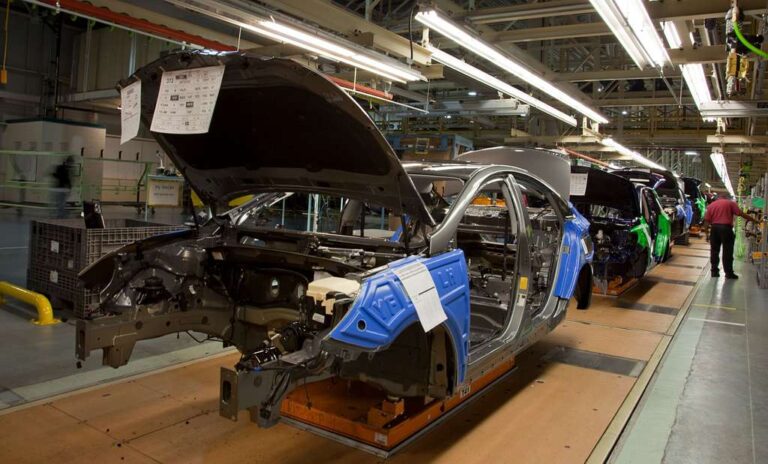
In just the first week of February, Slovakia expressly adopted a new law on screening of investments. While FDI screening is more than necessary, its rushed preparation has left the legislation markedly flawed.
A surge in Chinese investment in Europe following the global financial crisis and subsequent realization that the Chinese government can exert its political influence via its investment has been a major reason why policymakers across the EU began to consider adopting FDI screening legislation, under which they could block risky non-EU investment. To maintain a similar standard and prevent possible negative impact on the free movement of capital, the EU passed a framework regulation on FDI screening mechanisms in 2019, and, until recently, 14 member states had implemented some sort of FDI screening mechanism. During the first week of February, Slovakia, rather surprisingly, joined these ranks.
A Hasty Reaction
The new FDI screening mechanism was adopted by the National Council of Slovakia in an expedited procedure as an amendment to the existing Act on Critical Infrastructure. Minister of Economy Richard Sulík publicly justified the need to rush the amendment through the legislative process due to the supposedly looming risk of Russian state-owned bank Sberbank taking over Slovenské elektárne, a partially state-owned electricity provider due to having outstanding loan repayment.
This setting is important, as it had a major influence on the final form of the law. The entire legislative process took mere five days – from approval of the bill by the government on February 1 to its final adoption by the National Council on February 5. Naturally, the short time frame meant no meaningful discussion on the law could occur. The law was published in the Collection of Laws on February 18 and will come into force on March 1.
The scope of the investments which fall under the new mechanism is both narrow and wide at the same time. In its current version, only changes in control over elements of critical infrastructure under oversight by the Ministry of Economy can be screened and eventually blocked. This includes energy, pharmaceutical, metalworking, and chemical industries. While the list of specific companies which are deemed critical infrastructure is not public for security reasons, it is publicly known that several large employers, including the aforementioned Slovenské elektrárne, belong here. Besides Slovenské elektrárne, elements of critical infrastructure include also oil refinery Slovnaft (owned by Hungarian MOL group), or U.S. Steel Košice (at one point it was negotiated that the company would be sold to a Chinese SOE Hesteel).
While the focus on critical infrastructure overseen by the Ministry of Economy makes the list of potential subjects for the screening small, the scope of potential changes in control is particularly wide. Here, three separate issues need to be considered: share-size threshold, types of changes in control considered by the law, and territorial scope of covered subjects.
Indirect Ownership Conundrum
The original government bill would have covered all changes in share ownership over 5%. From the European perspective, such a threshold would have been quite low. Still, it would be not unheard of from a global perspective. For example, Japan actually maintains a threshold of a mere 1% share for which security screening could be deployed. Nevertheless, after some public criticism, the Slovak threshold was increased to a 10% share. Slovakia thus adopted the same threshold as in the Czech or German FDI screening laws.
However, it may indeed have been prudent to keep the lower threshold, as it would offer a wider area to deploy the screening mechanism. Notable Chinese investment by now-bankrupt CEFC (its assets were taken over by the Chinese SOE CITIC) which purchased a 9.9% share in J&T Finance (a nominally Czech business group with numerous activities in Slovakia, including in banking, ICT, media, or energy sectors via a network of subsidiaries and sister companies) would thus remain outside the scope of the mechanism. It needs to be noted that having a lower threshold does not mean that these low-share investments will be deemed risky. It still stands that the lower the share of the incoming investor, the lower the chance such investment will be substantially abused in the future.
The screening mechanism, however, does not deal only with equity investments. It rightly notes that critical infrastructure could fall under risk also in case of sale via asset-purchase investment (i.e. the investor buys the infrastructure itself rather than shares in its original owner), or in case of exercise of lien rights or forced sales under bankruptcy proceedings.
As for the territorial scope, here the goal of the government and the actual wording of the law are at a major disconnect. Under the EU Framework Regulation, only extra-EU investors, or intra-EU investors with non-EU ultimate beneficial owners, are to be screened. The government aimed to deal with the issue of non-EU foreign control over critical infrastructure by including a broadly formulated clause on changes in indirect control. The clause in question, however, does not distinguish in any way between EU and non-EU entities, thus opening a risk that purely EU-based companies could come into the new law’s crosshairs in the future, an eventuality that for example, the Italian Enel was quick to point out.
Pro-investment Gatekeeper?
Typically, FDI screening mechanisms provide substantial power to those who are tasked with making decisions, as they could infringe (though justifiably) on important constitutional rights – right to own property and to freely conduct business. Hence, the question of who makes decisions is equally important as the question of who is to be screened.
Rather unsurprisingly, the ultimate decision-making power on investments lies with the government cabinet. This makes the entire process inherently political, rather than bureaucratic. In the original draft of the bill, the government would have to give thumbs up to any case of transfer of control over elements of critical infrastructure, meaning that potential security risk would have to be evaluated, regardless of actual suspicion of security risks. Though, the mandatory ex-ante screening was scrapped after an amendment was introduced. The final version of the law provides that the Ministry of Economy ought to conduct a sort of pre-screening, and only if the Ministry finds potential risks, it can recommend to the cabinet to block the investment or to order the investor to adopt risk-mitigating measures. This procedural compromise is a result of pressure from transnational companies operating critical infrastructure, many of whom feared share transfers or purchases in the public markets might run into regulatory trouble with the Slovak government.
However, making the Ministry of Economy a gatekeeper for evaluation of potential security risks of investment creates new risks. Both corruption or an inherent pro-investment position of Ministry officials could preclude the initiation of a screening procedure of a potentially risky investment. To mitigate this risk, it would be prudent to provide the members of the security community (both state and non-state actors) with a tool to initiate the screening procedure in case of the Ministry’s inactivity.
Questionable Judicial Review
As the screening process is inherently political, it carries significant political risks, namely corruption and abuse of power. In an attempt to include some sort of safeguard against abuse of power, the law stipulates that blocking decisions by the government could be reviewed by the Supreme Court. While this may prima facie seem as providing the investors with a clear path to judicial review by the supreme judicial authority in the country, the opposite is true.
Current laws governing court procedure are not ready for such cases, and the authors of the bill did not include any provisions amending the procedural codes (whether on purpose or by omission remains unknown), as normally cases against decisions by state authorities are adjudicated by the Regional Courts (a mid-level court in the Slovak three-degree court hierarchy), while the Supreme court acts as a court of cassation in case a complaint is filed against the verdict of a Regional Court. Neither the law, nor the accompanying explanatory note offers any reasoning for this move. They also do not make it clear whether the judgement of the Supreme Court would be immediately final, or any sort of appellate mechanism would be in place (i.e. by a different chamber of the court). These uncertainties in the review mechanism diminish the certainty of potential investors into critical infrastructure and weaken their potential recourse to courts in case the FDI screening is abused.
It should be noted that under the recently published 2020 edition of the Corruption Perception Index by Transparency International, a watchdog, Slovakia (as many other CEE countries) is deemed to be more corrupt than the ‘old’ member states. A discussion whether such extensive power should not be given to an independent regulator rather than a political body would be warranted.
Thankfully, the government has a chance to redeem itself. As was mentioned, the adopted law was basically an ad hoc reaction to a pressing situation. A full-fledged FDI screening bill is still under preparation, which offers a chance to correct the many flaws of the current one.
Written by
Matej Šimalčík
MatejSimalcikMatej Šimalčík is Executive Director of the Central European Institute of Asian Studies, a think tank based in Slovakia, and a European China Policy Fellow at MERICS. He is a member of MapInfluenCE, a regional initiative aimed at monitoring China’s economic and political influence in Central Europe, where he acts as an analyst for Slovakia.

